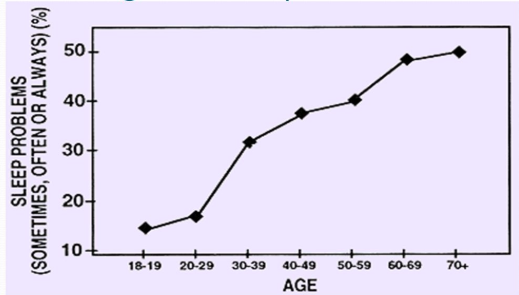I get asked all the time if a woman or a man needs more sleep. This a hard question to answer because the research just isn’t there yet. Beyond what the scientific reports tell me, what I see in actual people in and day out from a clinical perspective, however, says a lot. I know from a clinical standpoint that women tend to confess more about sleep issues than men. Does that mean men are less vulnerable to sleep problems or that women happen to be more comfortable talking about their health? It’s hard to say.

Given my experience, I’m inclined to admit that women, as a gender, appear to bear numerous stresses due to the multifaceted nature of their roles in today’s society: Mom, Wife. Employ Chauffeur. Cook. Cleaner. Business owner. Family manager. Caretaker etc. When I sit and talk with my female patients who do happen comprise more of my patient base than males we discuss everything from pregnancy to menopause, to career, to marriage, and that word “balance,” and I know I’ve got it much easier than many of them.
One would naturally think that since women and men are physiologically different, they’d also have different sleep needs. But women from adolescence to postmenopause, are underrepresented in studies sleep and its disorders. Although sleep complaints are twice as prevalent among women, the majority of sleep research has been conducted in men (this is changing). Some studies are now showing that women men be at greater risk for insomnia, or have a predisposition due to their Sex, but explaining this from a purely scientific standpoint is not entire] possible right now. Thus, the question remains unanswered.
Compounding the complexity of this question is the fact that age can have more to do with sleep needs and experiences than gender. For example, younger women may build up a sleep debt more easily than older women. Whether or not this is true, however, is debatable. In fact, many sleep studies result in controversial and inconclusive data.
Read Also What are the causes of Insomnia in Women?
What we do know about sleep and aging is that the older you get, that more likely you are to suffer from interrupted sleep, which is critical to feeling rested and refreshed, Older people still need roughly the same number of sleep hours as they got when they were younger (it may dev ate by thirty minutes to an hour, over a lifetime), but the architecture their sleep shifts. The amplitude (height) of their brain waves decrease, making these waves no longer meets the criteria for deep sleep. They an easily awakened by a noise, light, or even their own pain from a chronic medical condition. Sleep becomes more fragmented and inefficient, the actual time spent sleeping is less than the time spent in bed.
Read Also Insomnia In Elderly – What causes it?
Another influential aspect of aging that can affect sleep is your circadian rhythm, which is a very important subject matter we’ll be visiting throughout this book. Circadian rhythms are the patterns of repeat activity associated with the environmental cycles of day and night. Our internal rhythms repeat roughly every twenty-four hours. Examples dude the sleep-wake cycle, the ebb, and flow of hormones, the rise a fall of body temperature, and other subtle rhythms that mesh with the twenty-four-hour solar day. A lot of people’s sleep problems can be attributed to an internal clock that has become out of sync or mismatch with the day-night cycle. And as you’ll learn about extensively, it has an immense impact on setting our body clocks, also called our circadian pacemakers.